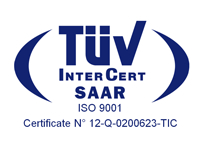- High integrity vehicle’s positioning and communications platforms;
- 20 years of collaboration with universities, industries, researchers, stake-holders;
- 3 Laboratories with universities.
Radiolabs – a research non-profit consortium between universities and industries was created on 12 January 2001 to fostering innovation in the field of emerging Information and Communication Technologies (ICT) through collaborative research and technology transfer. In the last decade, prominent breakthroughs were achieved on GNSS and telecom technologies leveraging on high integrity positioning and public telecom networks combining cellular and Satcom solutions for the evolution of the European Railways Train Management system – ERTMS. These years saw important technology advances thanks to the collaboration with Ansaldo STS (now Hitachi Rail) joining the consortium in 2011 and stimulating breakthrough innovations in the field of train control systems.
The production of scientific knowledge to creating growth-boosting innovations is recognized by Stanford University that included Radiolabs with its president prof. Alessandro Neri in the list that represents the top 2% of the most-cited scientists in the world. R&D international projects of Horizon 2020 and ESA, with the contribution of ASI, are financing an important amount of innovation that is needed to exploit the synergy between satellite and rail ecosystems and to maximize their growth. Radiolabs is acting as a catalyzer of innovations to responding to societal challenges with a number of successful initiatives: 9 open competition H2020 projects (4 as coordinator) whose 6 awarded by GSA and 3 by the Shift2Rail Joint Undertaking.
Today Radiolabs has much evolved since 2001 having a consolidated research organization, coordinating three specialized laboratories at the universities of Roma TRE, Roma Tor Vergata, and the University of L’Aquila. His team is composed by highly qualified staff with doctoral/master’s degrees and Ph.D. and as many as other researchers and professors at the university’s laboratories. This knowledge-based ecosystem liaising with its industrial partners Hitachi Rail and WESTPOLE is the “engine” to cast research and innovations for a greener and sustainable mobility. The targets are standard and open access vehicle’s positioning and communications platforms by exploiting the new features of Galileo, video imaging, 5G, and Satcom constellations.
The array of projects undertaken by Radiolabs for the next 3-years is remarkable in various ways. These technologies will enable safer and more economically sustainable transportations means bringing side benefits to the environment with less CO2 emissions that is a priority of the European Green Deal to become climate neutral by the year 2050.
Priority is on a standardized ecosystem to test the new platforms in operational scenarios and to simulation/emulation tools with hardware in the loop to support the design and validation phases of target applications. Most of the research undertaken by Radiolabs is developed at an international level with teams of industrial stake-holders, train operators, and research institutions. The next challenges are artificial intelligence and deep learning techniques to be embedded into the new platforms and cloud-based architectures that are already being used for creating a shared working and testing environment connecting remote centers. Forging new skills and competences is a day by day process that benefits from the close interaction between academia and industries that is a pillar of Radiolabs mission.
Step-change innovations beyond the state of the art are pushed by the connected car market with precise and trusted positioning, low latency communications, and cybersecurity. Radiolabs is deeply involved in the EMERGE project, an initiative for the connected vehicles co-funded by the Ministry of Industry and Economical Development – MISE, coordinated with projects of FCA-CRF, University of L’Aquila, and Region Abruzzo. EMERGE – an example of a successful public-private-research initiative and a model for pooling together a multi-disciplinary team, has just completed the first of its three years work plan. It is building a blue-print ecosystem where developing the positioning-communication and cybersecurity platforms, a center of excellence for training new skills, and a dedicated laboratory with a test-bed for the validation and certification process.
Radiolabs is a member of the Italian Cluster of Transport.



